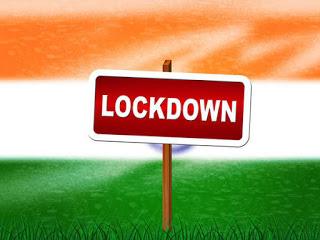It’s not lockdown, better to spell it “luck-down”. Now it started for weekend days and after a few days, it is likely to be for the full week. The Government is serious for the poor and immediately one scheme was announced for feeding BPL people. The Centre said 80 crore people would be benefited from the scheme. It means indirectly 80 crore people are there who are BPL.

The distributing officers and Sarapanchs are happier getting this news than the people who are going to get these benefits. However, what about teachers in unaided private schools, office assistants, data entry operators, salespersons, receptionists, beauticians, who run small shops and other service providers, who all are the worst hit? Most of them may not receive the salaries for the coming few months and they hardly have any savings to support their families. Many of them fear job loss post lockdown.
It is not just the socially and financially poor and the migrant workers who are facing the brunt of coronavirus-induced lockdown.
Activists say lower middle-class families with meagre income are badly hit, but the problem is not getting due attention because of lopsided priorities. While those categorised below the poverty line (BPL) are getting some sort of assistance in the form of cooked food, ration or financial aid from the Governments or NGOs and philanthropists; while an overwhelming majority of the lower middle class are left high and dry.
A BPL family with a white ration card, for instance, can get Rs1, 500 financial aid and 12 kg rice announced by the Telangana Government and is also entitled for assistance from the Centre as relief during the lockdown period. Even those who have no ration cards can get cooked food being supplied by the Government agencies or numerous NGOs and philanthropists. They are also seen standing in queues to receive food rations being distributed by various socio-religious organisations.
The lower middle class is caught in a dilemma as their dignity holds them back from extending their hands to seek aid while the NGOs and philanthropists will be reluctant to give any assistance, lest they feel bad about it, activists say. They also said the focus of all aid programmes of both the Government and NGOs is people who are traditionally perceived as poor and who are indeed poor but the lower middle class, who are also in dire need of assistance have been left out. These people don't seek help from anybody. They don't stand in queues for aid. They have been working hard and carrying on with their life but the crisis has suddenly made them vulnerable.
Many have not received a salary for March and may not get it for a couple of months more. Many categories of mid-level jobs were created thanks to the booming service sector over the last couple of decades. They are mostly employed in the retail sector, healthcare, teaching, hospitality, travel and tourism. Aid workers point out that most of those who fall into this category are sole bread earners for their families and even if their spouses work they also do similar jobs like that of receptionists, office assistants and teachers.
A general perception is that someone like an autorickshaw driver is poorer than others but when you look closely many of them have additional sources of income. Their wives work as maids or as some daily wagers and at least one of their children works as a mechanic. Thus the total income of such a family may go up to Rs 25,000 which is higher than the average income of Rs 15,000 of people treated as lower middle class. NGO COVA, which works among economically weaker sections, women, refugees and migrant workers, felt the need to focus on the people who are not covered by any Government programme or the activity of most of the NGOs. It has drawn a programme to provide financial aid to teachers of small unaided schools. Realising that reaching out to this section with either cash or relief material is not the proper way; the NGO gathered details of the teachers and transferred the money into their bank accounts. It’s the reality that most of the teachers in unaided schools draw monthly salaries between Rs 4,000 and Rs 10,000. Only those who take tuitions may have some savings to face this situation.
Source: https://www.dailypioneer.com/2021/state-editions/lockdown-is----luck-down----for-middleclass.html
